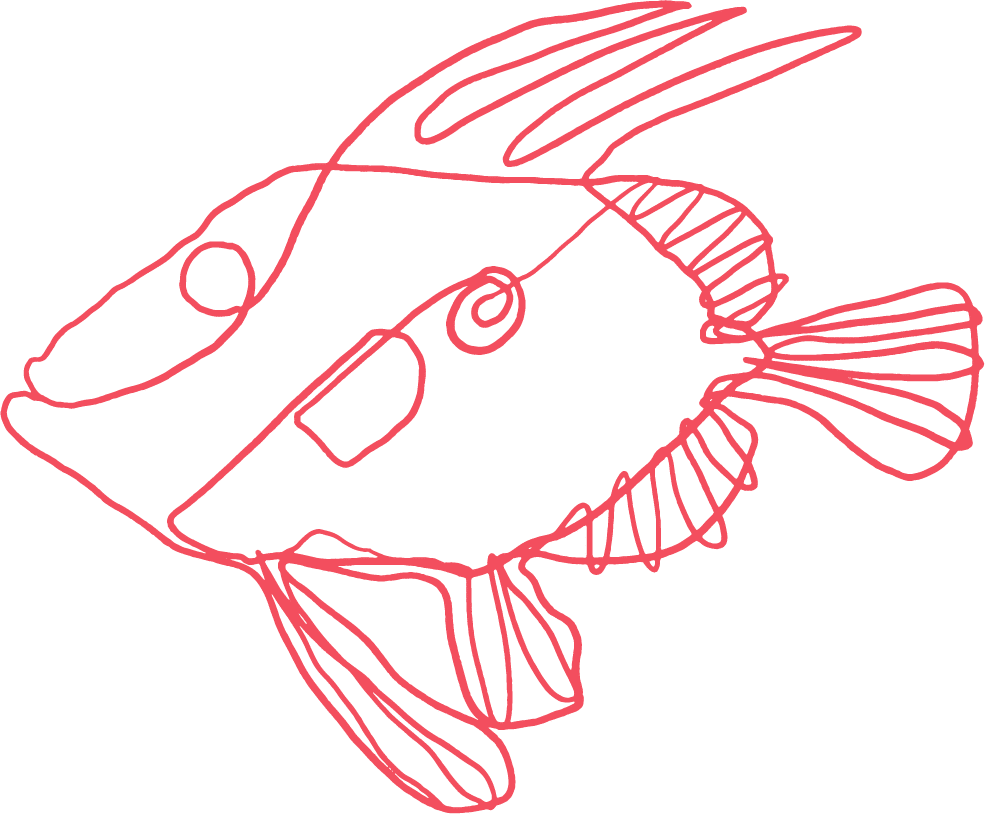![]()

![]()

Wrasse
Ballan Wrasse are striking, colourful fish, easily recognised by their thick lips, strong jaws, and robust, oval-shaped bodies. Their colour can vary greatly depending on their habitat, from shades of green, brown, and red, often mottled with white or blue markings. They have a tough, scale-covered body and a continuous dorsal fin running the length of their back.
Found around the coastal waters of the UK and Ireland, Ballan Wrasse are particularly associated with rocky reefs, kelp beds, and underwater caves. They are non-migratory and tend to stay close to their home territory throughout their lives, favouring the warmer, more sheltered coastal areas of the southwest and western UK.
Sustainability Rating

Status: Ballan Wrasse are not considered overfished, but sustainability concerns exist when the species is targeted heavily for use as "cleaner fish" in salmon farms.

Best Choice: Wild-caught Ballan Wrasse using hook and line or small-scale potting methods.

Avoid: Fish caught for aquaculture (cleaner fish) without robust sustainability measures, as this can pressure local populations.
Culinary Uses

Ballan Wrasse has a firm, white flesh that is low in fat but can sometimes be overlooked in British cuisine.

Best suited to slow cooking methods, such as baking, poaching, or steaming, to preserve moisture and bring out its subtle flavour.

Its dense texture works well in fish stews, curries, or simply grilled with butter and herbs.

Traditionally popular in Mediterranean and Atlantic coastal cuisines.
Best Fishing Practices

Hook and line fishing is the most sustainable way to catch Ballan Wrasse, minimising habitat damage and bycatch.

Potting is another low-impact method occasionally used for targeting larger individuals.

Managing the use of Ballan Wrasse as cleaner fish in salmon farming is critical to preserving wild populations.
Seasonality

Ballan Wrasse are available throughout the year, but fishing tends to peak during the warmer months from May to September, when they are more active and easier to target.
The Importance of Sustainable Wrasse Fishing
While not traditionally a staple in British fishmongers, Ballan Wrasse play a vital role in the coastal marine ecosystem, helping to control populations of smaller invertebrates. As their popularity grows, especially for use in aquaculture, careful management is key to ensuring wild stocks remain healthy. Choosing fish caught using low-impact, traditional methods helps support responsible fishing practices and the health of our coastal environments.
On our menu: No
Book now
Join us at Faber Restaurant to explore our menu. Book a table today using the form below or call us on 0208 161 9800 if you have any special requirements.
Faber’s Private Hire Oyster Bar adds a unique and luxurious touch to weddings, private parties, and corporate events.
Read moreFaber’s Private Hire Oyster Bar adds a unique and luxurious touch to weddings, private parties, and corporate events.
Read moreFaber is the perfect venue for group dining, drinks and our tasting menu. Catering for large parties and corporate occasions and dining with our tasting menu options.
Read more
